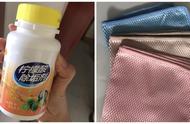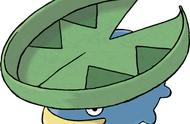
构成英语句式的各个部分就叫做英语句子成分。在英语句子中,按照词与词之间的不同关系,总共有7种句子成分。这7种句子成分分别是:主语(Subject)、谓语(Predicate)、宾语(Object)、表语(Predicative)、定语(Attribute)、状语(Adverbial)、补语(Complement)。经常有人问我,什么是谓语?什么是状语?……索性今天小编就普及一下,别不好意思。
英语句子成分一:主语(Subject)
主语是句子谓语描述的主体,是动作的执行者,或者状态所描述的对象。能够充当主语的有:名词、代词、动名词和名词性从句。
例句1:This story inspired a generation.
这个故事激励了一代人。
注释:这句话是由名词“this story”充当主语。
例句2: He can soar in the sky like a bird.
他可以像鸟儿一样在空中翱翔。
注释:这句话的主语是由代词“he”充当。
例句3:Seeing is believing. 眼见为实。
注释:动名词“seeing”充当这句话的主语。
例句4:Whether she will come to my party remains to be a question.
她能不能来参加我的派对还是个问题。
注释:这句话的主语是由“Whether she will come to my party”这个名词性从句来充当。为了保持句子平衡,通常会借用形式主语“it”。所以,这个句子也可以写成:It remains to be a question whether she will come to my party.
英语句子成分二:谓语(Predicate)
谓语是英语句子的灵魂,是用以说明主语的动作或状态。一般由动词来充当(包括be动词和实意动词)。如果描述主语的性质、状态,就用be动词 表语构成;如果描述主语的行为、动作,就用实意动词。
例句1:Huang shan is famous for its beautiful scenery.
黄山因它秀美的景色而闻名。
注释:这句话的谓语部分是又be动词 形容词(famous)组成。
例句2: All the senior high school students nourish the dream of gaining admission to a university. 所有高中学生都梦想考上大学。
注释:这句话的谓语是由实意动词“nourish”充当。
英语句子成分三:表语(Predicative)
表语一般是在系动词之后,表示主语的特征、性质、或状态。能充当表语的有形容词、名词、副词、动名词、名词性从句。
例句1:This place is unsafe.这个地方不安全。
注释:形容词“unsafe”充当表语。
例句2:Mr White is a prominent physical scientist. 怀特先生是名杰出的物理学家。
注释:名词“a physical scientist”充当表语。
例句3:My parents is out. 我父母出去了。
注释:副词“out”充当表语。
例句4:Her job is to look after the kids. 她的工作就是照顾小孩。
注释:动名词“to look after the kids”充当表语。(注:to do, doing 作名词功能时概称动名词)
例句5:That is why she got angry with her parents. 这就是他跟他父母生气的原因。
注释:表语从句“why she got angry with her parents”充当表语。
英语句子成分四:宾语(object)
宾语是及物动词的对象,或者说是谓语动作的承受者。充当宾语的有名词、代词、动名词和名词性从句。
例句1:The failure stimulates their fighting will. 这次失败激发了他们的斗志。
注释:名词“fighting will”充当宾语。
例句2:I like reading English novels. 我喜欢读英语小说。
注释:动名词“reading English novel” 充当宾语。
例句3:I don’t know what you want. 我不知道你想要什么。
注释:宾语从句“what you want”充当宾语。
英语句子成分五:补语(Complement)
补语是对主语或者宾语的补充说明。能充当补语的有名词、形容词或与之相当的结构。
例句1:I believe the legend true. 我相信这个传说是真的。
注释:形容词“true”充当宾语“legend”的补足语。
例句2:My father asks me to study abroad. 我老爸让我出国学习。
注释:动词不定式“to study abroad”充当宾语“me”的补足语。
例句3:I see her crying in her room. 我看见她在她自己房间里哭。
注释:现在分词(动形词)“crying”充当宾语“her”的补足语。
例句4:She can speak two foreign languages, which surprises all the people.她能说两门外语,这让所有人吃惊。
注释:非限定性定语从句“which surprises all the people”充当前面整句话的补语。
英语句子成分六:定语(Attribute)
定语是用于修饰、限定名词或代词。能充当定语的有形容词、动形词、形容词性从句(定语从句)或与之相当的结构。
例句1:Tony is an intelligent and diligent student. 托尼是个聪明且勤奋的学生。
注释:形容词intelligent和diligent都是定语,用于修饰“student”。
例句2:The running water will never stop their forward steps. 奔腾的流水永远不会停止他们前进的脚步。
注释:动形词“running”作为定语,修饰“water”。
例句3:The students who want to get good scores should work hard.想要得到高分的同学需要努力学习。
注释:定语从句“who want to get good scores”充当定语,修饰先行词“the students”。
英语句子成分七:状语(Adverbial)
状语是用于修饰动词、形容词、副词或整个句子。能充当状语的通常是副词、动副词、或状语从句。
例句1:They finished their work well.他们很好地完成了工作。
注释:副词“well”充当状语,在句中修饰动词“finish”。
例句2:Seen from back, she is really a beauty. 从背后看,她真是个美女。
注释:动副词“seen from back”充当状语,在句中修饰后面整个句子。
例句3:To improve my oral English, I often go to English corner. 为了提高我的口语,我经常去英语角。
注释:动副词“To improve my oral English”在句中充当目的状语。
例句4:When I came back home, my parents had slept. 我回到家时,父母已经休息了。
注释:时间状语从句“When I came back home”充当状语。
















